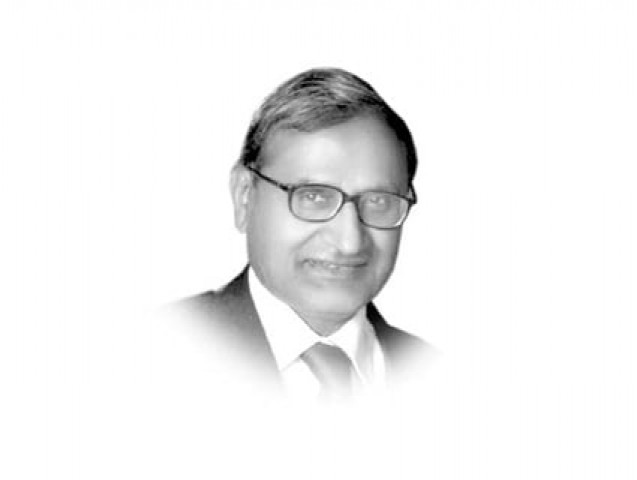Six points: Then and now
Unlike Mujib, who faced opposition from within his party, Mengal's 6 points have been supported by a government ally.

Six points: Then and now
Going by the texts of the six points presented by both leaders and the events that followed, there are many differences. Mujib’s six points covered constitutional, political, economic and strategic aspects. It was a maximalist position to secure a fair deal for East Pakistan. Mengal’s six points do not go beyond demanding ordinary rights enjoyed by citizens elsewhere in the country. His is a minimalist position. Mujib presented his six points at a conference of opposition parties in Lahore in 1966, to consider a line of action that could be taken against the military government. All Punjab-based parties opposed him vociferously, which prepared the ground for the military to arrest him for treason. Our Baba-i-Jamhuriat, Nawabzada Nasrullah Khan, also belonged to Mujib’s Awami League. There was a split as the Nawabzada became the loudest opponent of his six points. Political parties from smaller provinces were sympathetic to Mujib. The famous Agartala conspiracy case followed. It is another matter that people ransacked the special court and the Punjabi judge trying the case had to run for his life.
Mengal, on the other hand, has submitted his case before an independent judiciary. All major parties from Punjab, including the Jamaat-e-Islami, which had set up armed groups to support military action in East Pakistan, have come out in his support. An ally of the government, the MQM, also expressed its solidarity. A most important difference is the availability of information. In West Pakistan, people had very little idea of what exactly was happening in East Pakistan, even on the day Dhaka fell. These days, the people in Punjab and other provinces are much better informed. Mengal’s case has been heard with understanding by the people at large. Mujib, in contrast, was unquestionably a traitor in the public eye.
All these dissimilarities are for the good. The Eighteenth Amendment and the seventh NFC Award have made their own contribution. Where, then, is the similarity that Mengal hinted at and which should be worrying us? The Balochistan issue is no more a matter of fair resource distribution or provincial autonomy. Rather, the issue is that just as the rejection of the maximalist six points of Mujib eventually led to an independent Bangladesh, the dismissive positions taken by the government and the various arms of the establishment before the Supreme Court might lead to a similar outcome. Due to geographical contiguity of Balochistan, brute force can delay, but not prevent, the worst outcome.
This dismissive attitude results from what the 1970 manifesto of the PPP described as the “internal colonial structure”. East Pakistan “was the major producer of exportable wealth at the time of Partition. The central government’s expenditure, however, was mainly in the Western part. Political power lay also in the West on that account and because of the presence there of an opulent feudal class. The development schemes were so made or implemented by the central government that the private sector under these schemes fell into the hands of a small number of businessmen, who either had their original homes in West Pakistan or had chosen to settle there … The result was that East Pakistan was subjected to ruthless exploitation ... It is no remedy to brand the victims of exploitation as traitors because they are driven to protest against the treatment they receive. Nor does it help to improve matters by insulting them as bad Muslims.”
Likewise in Balochistan, the issue is of the colonial treatment that is being meted out. Where does the PPP stand today?
Published in The Express Tribune, October 5th, 2012.















COMMENTS
Comments are moderated and generally will be posted if they are on-topic and not abusive.
For more information, please see our Comments FAQ